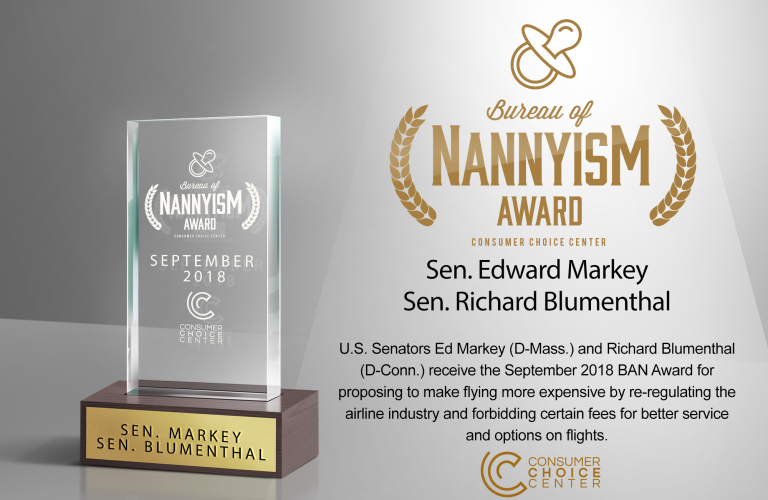Our Well-Timed Warning on FTX, Bankman-Fried and Future Cryptocurrency Regulations
This letter was sent to Senators, Congressmen of relevant committees, and regulators in the Consumer Financial Protection Bureau, Securities and Exchange Commission, and Commodity Futures Trading Commission in the aftermath of the FTX collapse. The previous letter can be viewed here.
Referring to the previous letter we sent to lawmakers and regulators on October 26, 2022, warning of the influence and inherent financial risks posed by then FTX CEO Sam Bankman-Fried and his related companies, here we offer our thoughts on what you should consider for future regulation on digital assets, cryptocurrencies, and the platforms that use them.
As you will have read by now, the alleged criminal actions of Mr. Bankman-Fried and his affiliated companies (FTX International, FTX Europe, Alameda Research, etc.), have led to several bankruptcy filings, will likely lead to expensive lawsuits, and, without a doubt, will invite investigations and questions from your colleagues and committees in Congress. All of these are necessary and prudent.
The halting of withdrawals for billions of dollars of customer funds, the intermingling of company and customer assets, the collateralization of new crypto tokens backed by nothing, and the unsustainable leverage conspired to create one of the most calamitous events in recent financial history. It is a stain on the reputation of creative entrepreneurs and builders providing value in the cryptocurrency space. This is made all the more troubling by the influence of this company and its leaders in our nation’s capital.
The significant influence of Mr. Bankman-Fried and his companies among Congressional members and staff, donations to political campaigns, and the close relationship with regulators present a damning case of what happens when politically connected firms aim to control and shape legislation without input from consumers and citizens.
While decision-makers were eager to meet with Mr. Bankman-Fried and mirror his biased suggestions on cryptocurrency policy in legislation and enforcement actions, consumer groups like ours sounded the alarm about the conflicts of interest detrimental to sound and principled policy for the millions of Americans who use and invest in cryptocurrencies like Bitcoin.
The Consumer Choice Center began writing publicly about the conflicts of interest and risky financial dealings of these companies and Mr. Bankman-Fried in September 2022, and how they would pose a considerable risk both to the legitimate cryptocurrency industry and to the savings and investments of millions of consumers. We remain steadfast in our conviction.
That said, as consumer advocates, we remain optimistic about the promises of Bitcoin, its cryptocurrency offspring, and the innovative blockchains, decentralized technologies, and crypto services that have evolved around them.
Users of decentralized technologies, however, do not need an industry approach to regulation. Regulations exist to set the rules of the game, not to chart the leaders of the game. This previous approach gave cover to FTX and its affiliated companies and has led to the disaster we see today.
The main caution we invoke, therefore, is that many proposed regulations aim to cement existing industry players and lockout innovative upstarts, while at the same time requiring the same restrictive rules that caused many people to explore cryptocurrencies in the first place.
As we have stated, if rules on crypto and its customers help solidify the financial portfolios, positions, and stock prices of only a select few companies, this will drive innovation away from our shores.
The bad actions of this particular company, while shocking and injurious to many, reflect the mistakes and alleged crimes of those involved. They do not, in any certain terms, condemn the wonderful possibilities of a crypto future nor the millions of consumers who responsibly use these technologies.
The frauds allegedly perpetrated are not too far removed from those of regulated financial firms that have deservedly reaped the consequences of misbehavior, either by the market or law enforcement. That the end product was cryptocurrencies instead of credit default swaps or mortgages makes no difference.
Fraud is fraud and remains illegal no matter what product a company is selling.
This is a stark contrast to the system of fractional-reserve banking that now underlies much of the American financial system and creates the incentives of malfeasance aided by loose monetary policy.
We should not mistake the ills of the current system for those of cryptographically secure digital assets.
With that in mind, rather than the approaches of several self-interested industry leaders, consumers deserve regulation on cryptocurrencies and digital firms that enforce existing rules on fraud (known as “rug pulls”), remain technologically neutral, offer reasonable and minimal taxation, and provide legal transparency. Punishing fraud and abuse, insider trading, and self-dealing should remain the focus.
As consumer advocates, we promote the principle of “self-custody” for crypto consumers, holding private keys to digital assets. This is a cryptographically secure method of controlling cryptocurrencies as originally intended, and one that should be an industry standard. This is the strongest method by which exchanges, brokerages, and those who regulate them can protect consumers.
The aim of cryptographic digital assets and decentralized digital cash, since the founding of Bitcoin in 2008 by Satoshi Nakamoto, has centered on creating permissionless, peer-to-peer transactions offering a final settlement in a decentralized manner. That should be the guiding principle rather than temporary self-interest.
The whims of a select few industry players, however successful they may be, cannot be the guiding light for the future of decentralized digital money, as the saga of FTX has proven.
The Consumer Choice Center created a policy primer on Principles for Smart Cryptocurrency Regulations in September 2021 to highlight these concerns and we hope you will apply them.
We remain at your disposal for any further exploration of how best to craft rules, guidance, and regulation on the future of cryptocurrencies in our country, so that all society may benefit.
Sincerely yours,
Yaël Ossowski
Deputy Director
Consumer Choice Center
Aleksandar Kokotovic
Crypto Fellow
Consumer Choice Center











